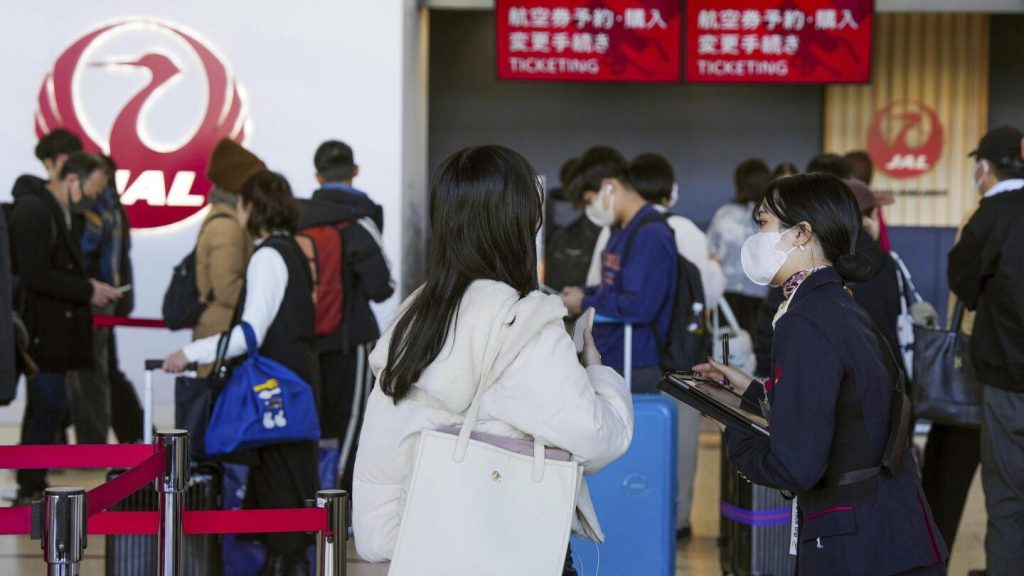Japan Airlines (JAL) faced a cyberattack on Thursday, causing delays to more than 20 domestic flights. The attack targeted the company’s network system, overwhelming it with massive data transmissions. However, JAL was able to identify the issue, stop the attack, and restore its systems within hours. The airline assured that flight safety was not compromised, and no customer data leaks occurred. Although the cyberattack delayed 24 domestic flights, JAL managed to resume ticket sales for both domestic and international flights later in the day.
This incident comes amid concerns about Japan’s cybersecurity vulnerabilities, with experts emphasizing the need for stronger defense capabilities. The country has been working closely with the United States and other partners who have more robust cyber defenses. Japan’s space agency also reported cyberattacks in recent years, prompting investigations and efforts to enhance preventive measures. Last year, a cyberattack disrupted operations at a container terminal in Nagoya for three days, highlighting the potential impact of cyber threats on essential infrastructure.
In response to the cyberattack, Chief Cabinet Secretary Yoshimasa Hayashi urged JAL to expedite the restoration of its systems and support affected passengers. Despite the disruption, other Japanese airlines such as ANA Holdings, Skymark, and Starflyer remained unaffected by the attack. The timing of the cyberattack, during the year-end holiday travel season, added to the challenges faced by passengers at Tokyo’s Haneda airport. With offices closing for the New Year holidays, the incident disrupted travel plans for many individuals returning to their hometowns, underscoring the broader impact of such cyber incidents on society.
The attack on JAL raises concerns about the adequacy of Japan’s cybersecurity measures, particularly in critical sectors such as transportation and aviation. As the country continues to strengthen its defense capabilities and collaboration with international partners, addressing cybersecurity vulnerabilities remains a priority. The incident serves as a reminder of the evolving nature of cyber threats and the importance of proactive measures to safeguard against potential attacks. Despite the challenges posed by cyberattacks, JAL’s prompt response and successful restoration of its systems demonstrate the resilience and preparedness of the airline in handling such security breaches.
Moving forward, cybersecurity experts stress the need for ongoing efforts to enhance Japan’s cybersecurity infrastructure and resilience. Collaborative initiatives with global partners can provide valuable insights and best practices to strengthen defenses against cyber threats. As digitalization and reliance on technology increase, ensuring the security and integrity of critical systems becomes essential to safeguarding public safety and national interests. By addressing cybersecurity challenges proactively and investing in robust defense mechanisms, Japan can mitigate risks and protect against potential threats in an increasingly interconnected and digitized world.


